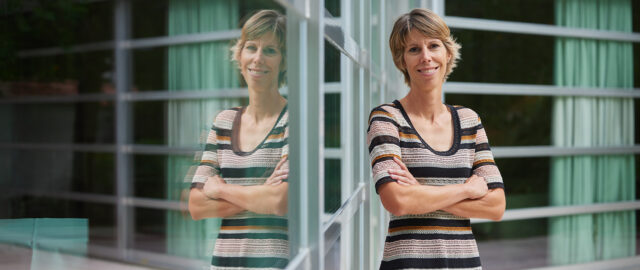DigiMeet took place virtually on 10 June 2021 with the special topic “sustainability in digital transformation: charting new terrain, exploring tensions.” The main purpose of this interdisciplinary event was to provide a forum for early career researchers with a focus on digitalisation-related topics and to inaugurate a collaboration between the three organising institutes on this matter that was initiated by a memorandum of understanding in Spring 2021.
We briefly review here what was generally regarded as a very successful event where high-profile keynote speakers and session chairs interacted with creative and engaged doctoral researchers. DigiMeet attracted in total more than 100 participants who visited and/or contributed to two keynotes, five thematic sessions and five Open Spaces.
Proceedings opened with a keynote address by Ortwin Renn on “Digitalisation and sustainability – friends or foes?”. The relationship of digitalisation and sustainability to each other can be understood both in negative and positive terms, depending on the perspective and respective dimensions that are being taken into account. Polarisation is not very effective. Rather, successful implementation must include the following aspects: openness for design; public space; common good orientation; as well as room for creating and promoting sustainability.
After a lively exchange of views, this first talk was followed by thematic sessions. These provided time and space for interdisciplinary presentations, receiving feedback and fruitful discussions.
Session chairs as well as doctoral researchers enjoyed an “open atmosphere and the engaging discussions”, with a focus “truly on scientific, interdisciplinary exchange and not just presenting”.
Varied discussions showed that interdisciplinary perspectives on many timely topics are highly relevant:
- Regarding algorithms and technologies, what level of understanding should users ideally have/seek to achieve? And how may the level of understanding be measured in the first place, how could it be improved further?
- How can sociological analyses and qualitative methods augment current measurements of “motivated reasoning”?
- How can engineering approaches, for instance to working with “interactive tables”, also be enriched and utilised by sociologists?
- What role(s) can algorithms play in deliberative democracy? How are algorithmic decision-making systems impacting social inequality? Are social networking sites contributing to political mobilisation? If so, in what ways, considering both beneficial and harmful aspects? Are social media being frequented and used differently by different parties and their followers?
Indeed, discussions were so intense that they continued in Gather.Town and throughout the lunch break.
Afterwards, participant-driven Open Spaces in Gather.Town opened and doctoral researchers discussed exciting issues with respect to: transhumanism; collecting data from social media; making data differentially private; and ways of collaborating in the digital space. Again, debate took place across disciplines and was full of insights, such as:
- Developing axioms towards a “theory of sustainable data for networked societies” (Hamm/Miceli) requires a combination of human-computer interaction research with social science methodologies to grasp the intricate arrangements and complexities of collecting, processing and using data in fields such as computer vision and civic tech initiatives
- Developing a framework for the sustainable use of digital data is a transdisciplinary and multinational task, which has to involve multiple stakeholders from science and practice. With this objective, the DiDaT white book project brings together, amongst others: politicians; mobility experts; psychologists; researchers in environmental studies and agriculture; sociologists; as well as representatives from small and medium-sized enterprises.
- Research with social media data is handled differently in the various disciplines. The debate depends largely on legal constraints covering both platforms and researchers. Overall, humanities issues have received little attention in digitalisation research to date.
As a perfect way to finish this productive day, Elisa Lindinger proposed in her keynote speech that we should visualise the internet as a park, where users can spend time relaxing in a friendly and beautiful environment rather than somewhere that is hostile and over-regulated. A key point of this talk, how a society and we as individuals would ideally like not only to experience but also shape this virtual place responsibly and equitably, formed the basis of lively discussion later at the Gather.Town bar.
All in all, we look back at a highly productive first event of a new annual series. A survey amongst all participants further confirmed this positive view of DigiMeet 2021. A large majority of respondents concluded that the meeting was in essence either a “superb” or “a really good” experience. Feedback further indicated that the formats worked well, with participants able to network as well as exchanging ideas and results as intended. Along with some ideas and suggestions for additional topics, such as platform governance, digitalisation and infrastructure, degrowth, or more generally insights from political consulting, we will plan the next edition of DigiMeet on one of our Institute’s premises and are looking forward to meeting everyone in person!
The blogs published by the bidt represent the views of the authors; they do not reflect the position of the Institute as a whole.





